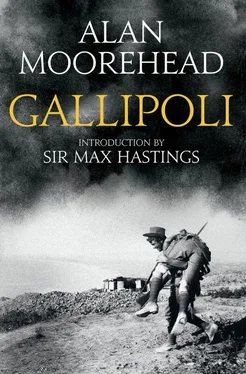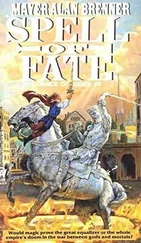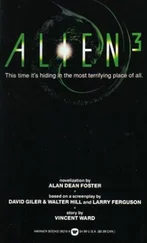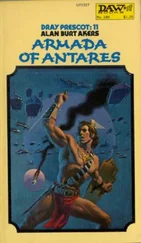It seems possible that Kemal’s astonishing career as a commanding general dates from this moment, for he saw what neither Liman von Sanders nor anybody else had seen — that Chunuk Bair and the Sari Bair ridge had become the key to the whole southern half of the peninsula. Once established on these heights the Allies would dominate the Narrows and direct their artillery fire where they wished for a dozen miles around. Indeed, the whole system of the Turkish defence was based upon the principle that they must hold the hills so that they could overlook the enemy and constantly force him to attack; and these were the most important hills of all. It was not distance that counted on Gallipoli, nor even the number of soldiers or the guns of the Fleet; it was a simple issue of the hills. Later on fifty thousand men were to lose their lives around Chunuk Bair in establishing this fact.
From the Allies’ point of view it was one of the cruellest accidents of the campaign that this one junior Turkish commander of genius should have been at this particular spot at this moment, for otherwise the Australians and New Zealanders might very well have taken Chunuk Bair that morning, and the battle might have been decided then and there.
After the war the Turkish General Staff noted in its history of the campaign: ‘Had the British been able to throw stronger forces ashore at Gaba Tepe either by reinforcing more rapidly those first disembarked, or by landing on a broader front, the initial successful advance of 2,500 yards in depth might have been extended so as to include the ridges overlooking the straits, and a serious, perhaps fatal, blow struck at the heart of the Turkish defences.’
Kemal realized at once that his single battalion was quite inadequate in this situation. He therefore ordered up the whole of his best regiment, the Turkish 57th, and then when heavy fighting developed he committed one of his Arab regiments as well. As a divisional commander he had no authority whatever to do this — these were the only reserves Liman possessed, and their position would have been hopeless if the Allies had planned yet another landing in another place. It was not until the end of the morning, however, that Kemal galloped back to Corps Headquarters and informed Essad Pasha of what he had done. At the same time he asked for permission to throw in the third and last regiment of the 19th Division. The battle had now grown so furious and threatening that Essad had no choice but to agree, and Kemal came back to assume command along the whole Anzac front. He never again left it until the campaign was virtually over.
There is an air of inspired desperation about Kemal’s actions this day, and he even seems to have gone a little berserk at times. Instinctively he must have realized thtat his great chance had come, that he was either going to die here or make his name at last. He was constantly at the extreme front, helping to wheel guns into position, getting up on the skyline among the bullets, sending his men into attacks in which they had very little hope of survival. One of his orders was worded: ‘I don’t order you to attack, I order you to die. In the time which passes until we die other troops and commanders can take our places.’ The soldiers got up from the ground and ran into the rifle and machine-gun fire; and presently the 57th Turkish Regiment was demolished.
It was the most confused of battles, for the Anzac troops were also determined to attack, despite the disorder of their first landing and the mixing up of their units, despite the fact that nowhere could the guns of the Fleet bring them any help in this bewildering country. There was no front line. The men landing on the beach were as much exposed to the snipers’ bullets as those a mile inland. Advancing up a gully the soldiers would suddenly find themselves in the midst of the Turks, and hand-to-hand fighting with the bayonet began. Ridges were stormed and lost, and then abandoned by both sides. Units fighting side by side lost touch not only with their headquarters but with each other, and there were times when the bullets like cross-currents in the wind seemed to be coming from several different directions at once.
And so all through the midday hours the wild scramble went on and no one could be sure of anything except that the Allies were ashore and building up their reinforcements with every hour that went by.
Meanwhile a battle of a very different kind was being fought by the British at Cape Helles, some thirteen miles away to the south. It will be remembered that the 29th Division (with some additional troops) under Hunter-Weston was to make five separate landings around the toe of the peninsula in the vicinity of the village Sedd-el-Bahr. This was regarded as the spearhead of the whole Allied offensive. Sedd-el-Bahr had been scanned many times from the sea, and it presented a perfect target for the naval guns. To the right of the little cove there was a ruined medieval fortress with a minuscule village behind it. Beside this fortress the land sloped quite gently down to a small gravelly beach no more than 300 yards long and 10 yards wide. Although it was known that this natural amphitheatre had been entrenched and sown with barbed wire it seemed likely that the whole area could be so savaged and cut about by the naval barrage that very little fight would be left in the defenders by the time the first British troops got ashore.
Accordingly at 5 a.m. in the uncertain first light of the morning the battleship Albion opened up a tremendous bombardment on the village and the cove. There was no reply from the shore. After an hour it was judged that the Turks there must either be demoralized or dead, and the River Clyde with her two thousand men on board was ordered to the shore. About twenty small boats all filled with men went with her. There was some little delay in the programme, for the current setting down the Dardanelles was much stronger than anyone had guessed, and the launches with the small boats in tow made slow headway against it. At one time the River Clyde got ahead of them and had to be brought back into position.
Thus it was in broad daylight and on the calmest of seas that the soldiers approached the shore. An unnatural stillness had succeeded the barrage. Neither on the beach nor in the fortress nor on the slopes above was there movement of any kind. At 6.22 a.m. the River Clyde grounded her bows without a tremor just below the fortress, and the first of the boats was within a few yards of the shore.
In that instant the Turkish rifle fire burst out. It was a frightful fire, and it was made more shocking by the silence that had preceded it. Far from being demoralized, the Turks had crept back to their trenches as soon as the bombardment was over, and they were now firing from a few yards away into the packed mass of screaming, struggling men in the boats. Some few among the British jumped into the water and got to the shelter of a little bank on the far side of the beach, and there they huddled while the storm of bullets passed over their heads. The others died in the boats just as they stood, crowded shoulder to shoulder, without even the grace of an instant of time to raise their rifles. When all were dead or wounded — the midshipmen and sailors as well as the soldiers — the boats drifted helplessly away. This was the beach on which the Marines had walked in perfect safety two months before.
Many strange scenes occurred because the men persisted in trying to do the things they had been told to do. A sailor from the Lord Nelson , for example, managed to pole his cutter up to the beach, but when he turned to beckon his passengers to the shore he found that they were no longer alive. The boy was observed to be standing there in wonder when he too was struck and his boat slid back into the sea.
Читать дальше












